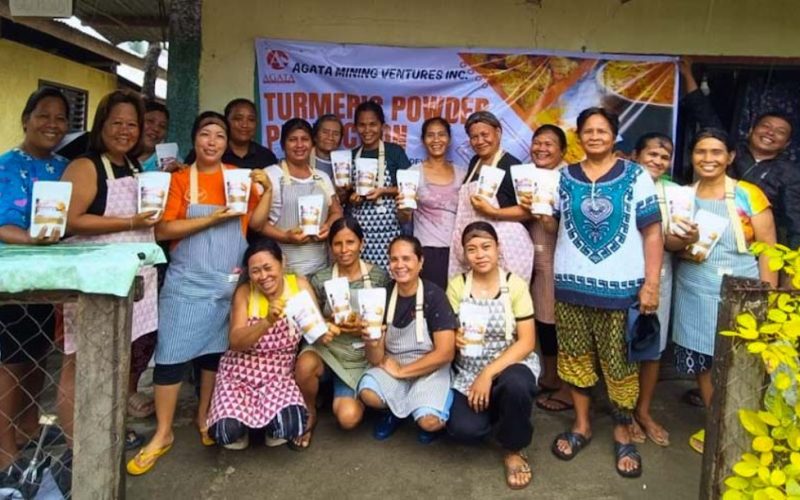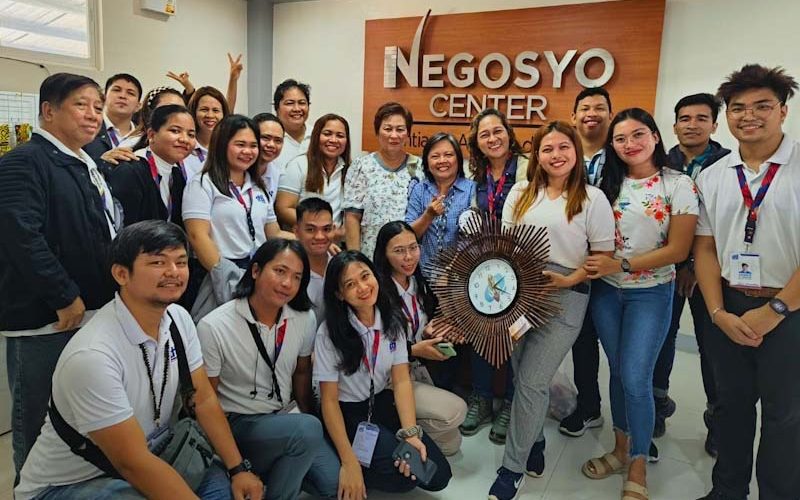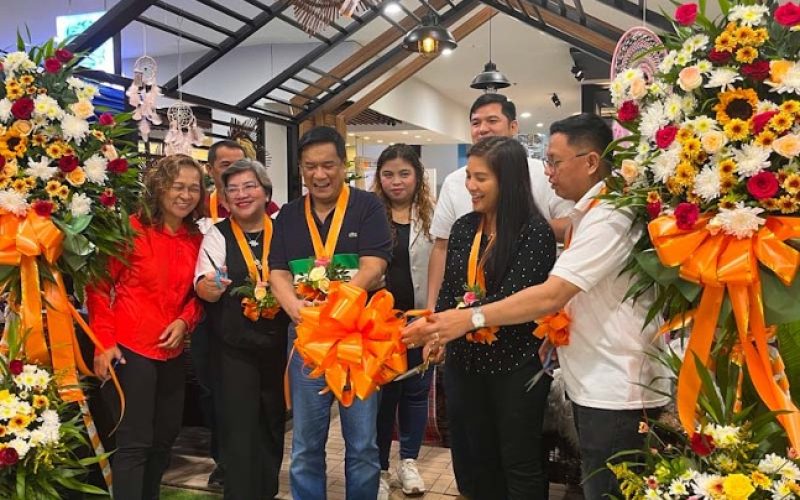Agata brings SDMP-supported community livelihood products closer to Filipino consumers

Some of Agata’s featured products crafted through its Mabakas Techno Demo Farm include various hand-crafted bags, chili oil, ‘Pijanga’ chicharon, banana chips, turmeric powder, and Agata’s famous coco vinegar.
Tubay, Agusan del Norte / July 2024 – Agata Mining Ventures Inc. (AMVI) – a joint venture project of TVI Resource Development Philippines Inc. (TVIRD) and Mindoro Resources Limited (MRL) that is now in the second year of its final rehabilitation – has taken significant strides towards bringing its communities’ organic handmade products closer to the Mindanao mainstream market.
The commercial distribution of these products is a milestone for the company’s Mabakas Techno Demo Farm School and the success of its Social Development and Management Program.
Mabakas is making its way into the regional market with two brand lines: Agata’s Best features an array of handicraft products that include fashionable bags, figurines, wall clocks, baskets, decorative vases, and ornamental furniture. These items incorporate organic materials and reflect the artistry of the community.
Meanwhile, the diverse selection of food products under Agata Fresh include crispy ‘Pijanga’ chicharon, indulgent Lawigan’s Bukayo coconut toffee, spicy chili garlic sauce, and refreshing calamansi juice,
Bottled achara, turmeric powder, coco vinegar, virgin coconut oil, and tablea chocolate complete the institute’s current line of innovative and high-quality products set to capture both the local and national markets.
Partnership with DTI
Agata recently partnered with the Department of Trade and Industry’s Negosyo Center in Caraga to support the sale and promotion of its local handicrafts as well as showcase these under the company’s SDMP, which aims to enhance and sustain community livelihood.
The collaboration also includes the sale and distribution of Mabakas handicrafts at the Negosyo Center, which is a valuable platform for reaching a broader market and promoting local craftsmanship. It likewise generates income for community members involved in the program and fosters economic development and sustainability in the region.
“This collaboration marks a significant milestone for Agata’s Mabakas farm school. It provides our local artisans an opportunity to showcase their handicrafts to a wider market. Together with the DTI, we are also driving social and economic growth in the Caraga region,” according to Mabakas Administrator Shiela Arcala
The proponents foresee that the partnership will greatly benefit local communities by enhancing the visibility and marketability of their handicrafts, thereby contributing to their overall economic growth.
Expansion through AllHome
The company also successfully forged a partnership with AllHome, a sister company of TVIRD, providing a valuable opportunity to showcase its community livelihood products in the store’s Butuan and Cagayan outlets.
“By featuring our products in AllHome, we can test their potential marketability as well as highlight the effectiveness of our sustainable agricultural livelihood practices and innovative farming techniques,” said Arcala.
“Through this strategic partnership, Mabakas is well-positioned to penetrate the Mindanao market and potentially expand its reach across the country through AllHome’s extensive network. We are set to increase our market share and establish a stronger foothold in the agricultural and livelihood sector,” added Arcala.
About Mabakas
The word “Mabakas” originates from the language of one of the oldest tribes in the Philippines – the Mamanwas, who are indigenous to Northeastern Mindanao. The word translates to “industrious” and reflects the values of the community. Mabakas operates in Tubay Municipality, Agusan del Norte Province where a significant population of Mamanwas live.
Established in 2018, Mabakas is the only farm school in the Caraga Region that is both operated by a mining company and accredited by the Technical Education and Skills Development Authority (TESDA) as a Livelihood Training Center. It is likewise recognized as an Accredited Agricultural Learning Institution by the Department of Agriculture.
Together with TVIRD’s SIDLAK Techno Demo Farm School located in its Balabag Gold-Silver Project, both institutions have generated more than 18,000 graduates to date – a significant number of whom now operate their farms that sustained their respective communities during the pandemic.



